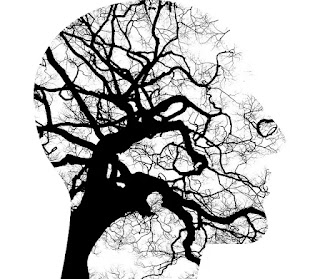Topic: Psychotherapy
By: Saniy.Z
Psychotherapy
Introduction
Psychotherapy is a kind of treatment for emotional issues and mental illnesses. It entails discussing one-on-one, in a group, or with your wife, husband, or partner to a qualified therapist. It enables you to delve deeper into your difficulties and concerns, as well as cope with problematic habits and a variety of mental diseases including anxiety, OCD, depression and schizophrenia.
Although talking is the most common way of psychotherapy, other techniques such as art, music, theatre, and dance may also be utilized. Psychotherapy can help you talk about your feelings about yourself and other people, especially family and friends. Couples or families may be offered combined treatment sessions in specific situations. The person who is suffering meets with the therapist on a regular basis, generally once a week, for several months, depending severity, frequency and durations of illness. Individual sessions typically last 50 minutes, while group sessions might run up to an hour.
Psychotherapy: The Four Main Approaches
Psychodynamic
Cognitive-Behavioral
Humanistic
Eclectic
Goals of psychotherapy
Response
Remission
Recovery
Stages of Psychotherapeutic Relationship
1. Commitment perception of the therapist motivation technical suitability.
2. Process search for patterns new information consolidation.
3. Change relinquish initiate sustain.
4. Termination granting permission autonomy.
What is psychotherapy used to treat?
Psychotherapy can be used to treat a wide range of mental health conditions, including:
depression
anxiety disorders
borderline personality disorder (BPD)
obsessive compulsive disorder (OCD)
post-traumatic stress disorder (PTSD)
long-term illnesses
eating disorders, such as anorexia nervosa, bulimia and binge eating
drug misused
How does psychotherapy work?
Psychotherapy may be used in a number of different ways. Many individuals believe that having the support of a compassionate therapist who truly listens and attempts to understand what they are going through is beneficial. Some people find that telling their therapist about their thoughts, feelings, objectives, or situations helps them to clarify them. Therapists can give comments, observations, facts, or a different viewpoint on what's going on, which can help people become more aware of what's going on.
For example, therapists may bring out links between ideas and feelings, or present responses and prior relationships that you may not have seen. Therapists frequently assist clients in learning new ways to interact to people or deal with difficulties.
Does psychotherapy really work?
The effectiveness of psychotherapy has been proven by a tremendous quantity of study. In one study about therapy effectiveness people showed results about treatment after two months, nearly half of the 2,400 persons who received weekly psychotherapy showed substantial improvement, and around seventy percent showed significant improvement after six months. The majority of people with severe problems needed a year to feel significantly better (Kopta et al., 2003)
According to a 1995 Consumer Reports study of 4000 persons who had recently had psychotherapy, over 90% of those who felt extremely poor when they began treatment felt significantly better ("so-so" to "very excellent") after receiving counseling. Those who had been the unhappy at the start reported the most progress. In addition, psychotherapy lasting more than six months was linked to greater recovery than treatment lasting less than six months, according to the report.
These figures may or may not reflect personal experience. The intensity of symptoms, the “fit” between you and your therapist, the work you put in to attempt to get better and the levels of stress and support you have in your everyday life will all influence outcome.




